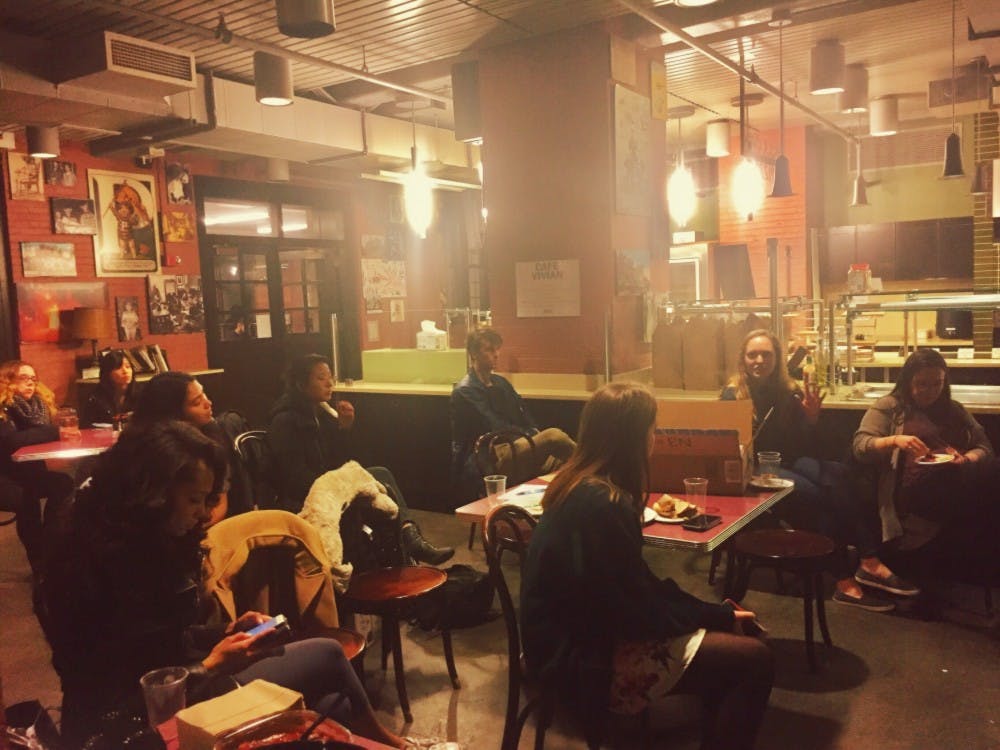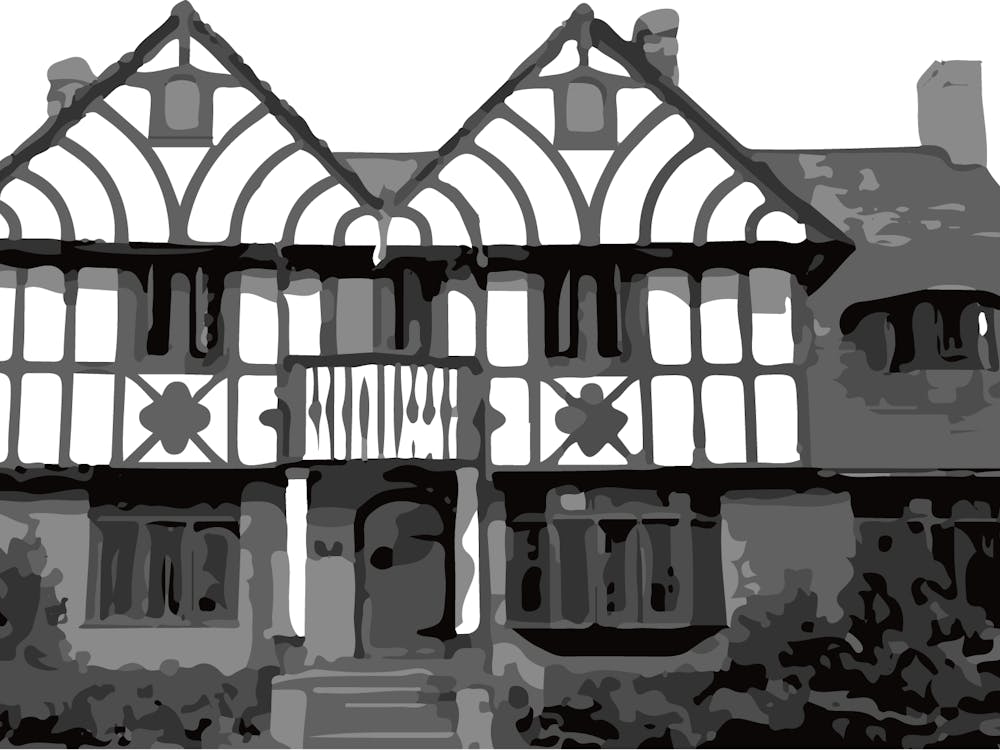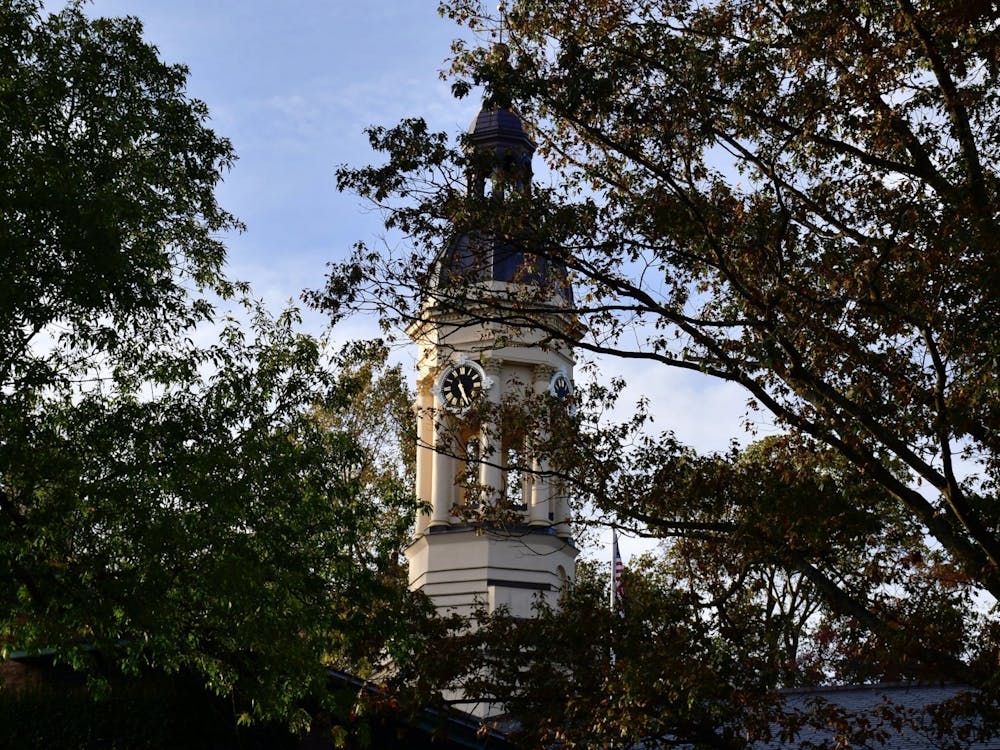“Probably the most dangerous thing about a college education, at least in my own case, is that it enables my tendency to over-intellectualize stuff, to get lost in abstract arguments inside my head instead of simply paying attention to what's going on right in front of me,” Mica O'Brien '17 stated during the Open Mic Night hosted last week by the Pace Council for Civic Values. O’Brien was quoting David Foster Wallace, an American novelist.
Titled “Poetic Justice,” this Open Mic Night was an annual event aimed at bridging the gap between art and service. It enabled participants to see service as an art form and art as a form of service. As Rebecca Kahn ’18, the operations chair of PCCV, commented after the performance that it was “particularly meaningful to see so many students, especially freshmen, wander in and stay for much of the two hours."
Kahn explained that during the event, people discussed how we essentially “perform service,” and the role of coercion in service. If service is an art, should the University mandate a requirement for service? Will that be antithetical to the latter’s purpose?
Elon Schmidt-Swartz '18 expressed surprise at how broadly service can be understood. “Love certainly came across as a form of service last night,” he said after the event. Service can be simple acts of kindness that many of us overlook on a daily basis.
Indeed, as college students, we get too consumed by our meticulously-scheduled lives stuffed with academics and extracurricular activities, that often times we fail to pay attention to what is going on outside, not only of the Orange Bubble but also of our very selves. Catherine Benedict ’20, who also attended the event, noted that at Princeton “We rarely sit back and reflect on the meaning of service.”
Benedict is a staff writer for the Daily Princetonian.
How do we foster more dialogue around service, then? Many members of the audience and the organizing team mentioned storytelling as an effective tool of processing and sharing experiences. “When you engage in service, you sometimes have to confront the reality that many individuals or groups have been forgotten by society, or that your own privilege may have insulated you from misfortunes common to those born into less fortunate circumstances,” Schmidt-Swartz explained. According to him, storytelling is a “powerful tool” to process the profound and often personal questions about justice and other civic values.
It is often the personal nature of storytelling that facilitates communicating the message to the audience and inspires them. Shelley Zhao ’18, a member of PCCV, explained that she did not expect people to be so open and willing to share poems or stories on such deeply personal subjects. Echoing David Wallace’s words, she pointed out how most conversations on campus revolve around “classes, academics, and stress,” and that it was “refreshing” to hear about other experiences and concerns beneath the surface of campus life.
“Stories, whether our own or someone else’s, are a way to connect us to the experience of being human and remind us that we owe so much to what others have done for us;” she said after sharing a personal story of becoming a Contact suicide hotline volunteer through the Pace Center after going through a mental health crisis herself. “They remind us that we would never have gotten to where we are in life without others guiding and believing in us, and the least we can do is return the favor to others who come after," Zhao said.
Return the favor. Give back. These words came up frequently during conversations on the Open Mic Night and in subsequent interviews. Many thought it was appropriate that this event occurred right before the winter holidays. “While we often associate giving presents with the holidays, the stories that I heard reminded me that there are other ways in which we can ‘give back’ to people and the community,” Liam O’Connor ’20 explained.
O'Connor is a columnist for the 'Prince.'
The first step to giving back is to be aware of the need and to understand it. The purpose of our education is not to teach us what to think, or even how to think, but for us to learn to exercise control over what and how we think.

As David Foster Wallace finished in his speech, “if you've really learned how to think, how to pay attention…it will actually be within your power to experience a crowded, loud, slow, consumer-hell-type situation as not only meaningful but sacred, on fire with the same force that lit the stars — compassion, love, the sub-surface unity of all things.”









